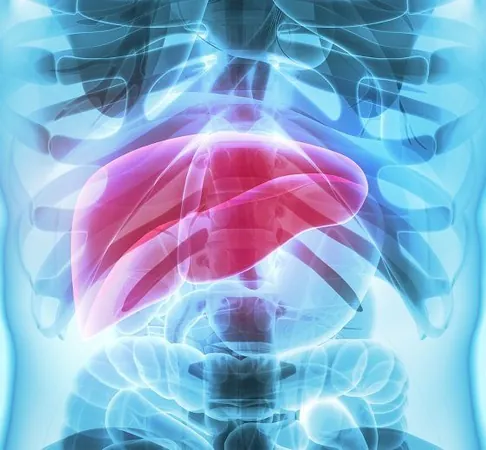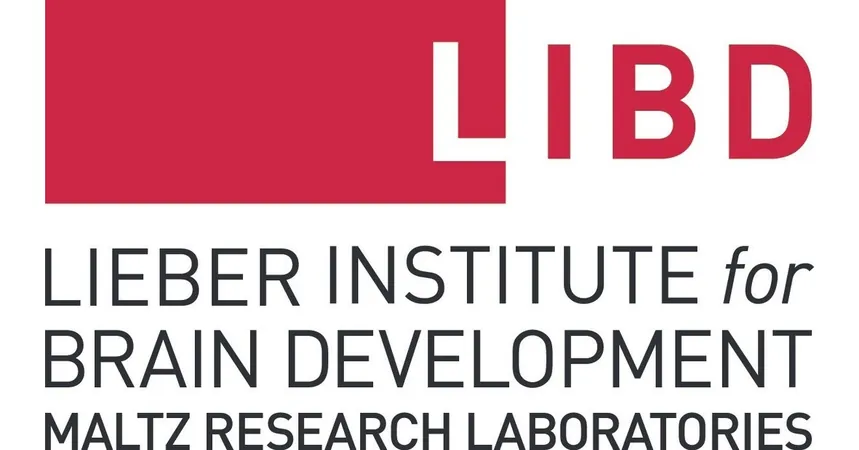
Boost Your Heart Health: New Study Links Higher Life's Essential 8 Scores to Lower Risk of Liver Disease!
2025-01-21
Author: Li
Introduction
Recent research sheds light on a crucial connection between cardiovascular health and the risk of developing Metabolic Dysfunction-associated Steatotic Liver Disease (MASLD), previously known as nonalcoholic fatty liver disease (NAFLD). This study could change how health experts approach liver disease prevention!
Study Overview
Using data from the National Health and Nutrition Examination Survey (NHANES) collected between 2017 and March 2020, researchers tapped into the American Heart Association’s Life's Essential 8 (LE8) score to assess cardiovascular health. They found that individuals with “moderate” or “high” LE8 scores experienced a significantly lower risk of MASLD compared to those with “low” scores.
Impact of MASLD
MASLD is estimated to impact over 30% of people globally, with risk factors that include obesity, insulin resistance, dyslipidemia, and type 2 diabetes. The implications of these findings are profound; cardiovascular disease and MASLD share many risks, thus presenting an opportunity for better preventive strategies.
Insights from Researcher
According to Jin-Yan Zhang, a researcher at The First Affiliated Hospital of Xiamen University in China, "The LE8 score may serve as a promising tool for assessing MASLD risk." Despite this, Zhang notes the current shortage of research exploring the relationship between cardiovascular health and MASLD, highlighting a vital area for further investigation.
Study Methodology
For the study, researchers analyzed data from 5,680 adults aged 20 and older, averaging 48 years, predominantly women (50.8%). The LE8 score, which ranges from 0 to 100, is based on 4 health behaviors—diet, physical activity, nicotine exposure, and sleep—and 4 health factors—Body Mass Index (BMI), blood pressure, blood glucose, and non-HDL cholesterol. Participants provided answers via surveys, and health metrics were determined through medical examinations and lab tests.
Key Findings
Findings showed that among participants diagnosed with MASLD, LE8 scores were significantly lower compared to those without the condition. Notably, the prevalence of MASLD was dramatically decreased in the high cardiovascular health group (12.0%) versus those with moderate (40.8%) and low health scores (62.0%).
Statistical Analysis
Statistical analyses revealed that those with moderate cardiovascular health had a 50% reduced risk of MASLD, while participants with high cardiovascular health showed a staggering 79% reduced risk compared to the low health group. The study also disclosed a 0.68 odds ratio for MASLD for each 10-point increase in LE8 score, reinforcing the positive impact of cardiovascular wellness.
Dose-Response Relationship
Further exploration identified a non-linear dose-response pattern between LE8 scores and health factors, while a linear relationship was found with health behaviors. This suggests that lifestyle changes promoting heart health can also be protective against liver disease.
Conclusion
The investigators concluded, "Maintaining optimal cardiovascular health could serve as an effective preventive measure against MASLD." Moving forward, it’s crucial for future research to delve deeper into the causal links and mechanisms connecting cardiovascular health and liver disease.
Call to Action
As public health experts continue to highlight the importance of heart health, this study serves as a reminder: improving your cardiovascular wellness could significantly lower your risk of developing dangerous diseases such as MASLD. Don't wait—start implementing healthy habits today!




 Brasil (PT)
Brasil (PT)
 Canada (EN)
Canada (EN)
 Chile (ES)
Chile (ES)
 Česko (CS)
Česko (CS)
 대한민국 (KO)
대한민국 (KO)
 España (ES)
España (ES)
 France (FR)
France (FR)
 Hong Kong (EN)
Hong Kong (EN)
 Italia (IT)
Italia (IT)
 日本 (JA)
日本 (JA)
 Magyarország (HU)
Magyarország (HU)
 Norge (NO)
Norge (NO)
 Polska (PL)
Polska (PL)
 Schweiz (DE)
Schweiz (DE)
 Singapore (EN)
Singapore (EN)
 Sverige (SV)
Sverige (SV)
 Suomi (FI)
Suomi (FI)
 Türkiye (TR)
Türkiye (TR)
 الإمارات العربية المتحدة (AR)
الإمارات العربية المتحدة (AR)